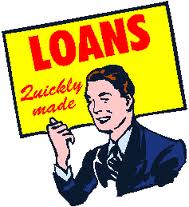.
Review of the book Real Estate Debt Can Make You Rich by Steve Dexter
While perhaps aimed at newer investors, this book also provides useful information for more experienced investors, and if you are doing fixer upper houses you will find it one of the better books on the subject.
I particularly liked the section describing “rate sheets”. Rate sheets are what lenders, like the author, use to set the interest rate that borrowers receive for their home loans. The more risk factors that a borrower has, the more points they have to pay, and ultimately the higher the interest rate.
The author has a table with a column of all the risk factors that are considered by loan officers, and a column of the points each risk factor will cost you. A few examples:
credit score below 620% = 0.5 points
non-owner occupied with 75-80% down = 2.0 points
loan amount <$100,000 = 0.5 points
loan amount <$50,000 = 1.5 points
manufactured home = 0.5 points.
The whole process is explained in a very understandable way.
The author writes in a style that is very accessible to the reader. He makes it easy for the reader to understand the process behind a loan, and describes how to improve one’s chances of getting the best loan for each individual’s needs.
I liked his point on the value of holding free and clear properties (no mortgages on them), and for rapidly paying down loans with appreciated equity from houses that have appreciated in equity over the years,and not from after-tax income.
The author provides a long list of useful web addresses in the Appendix that I found quite helpful.
This is a book well worth reading.
Share this: del.icio.us | Digg | Ma.gnolia | Reddit | Stumble Upon |






